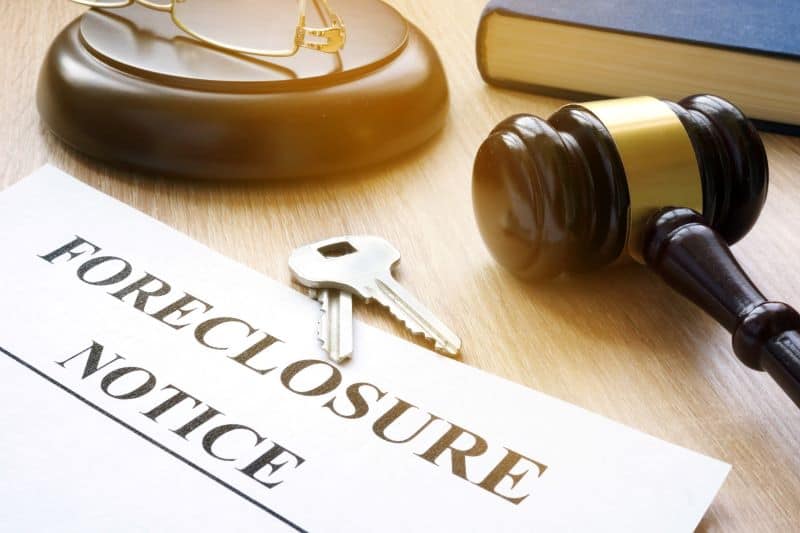Are you a homeowner in Indiana facing the possibility of foreclosing on your property?
If so, we understand that you want answers. These next few steps are critical ones and it’s important to be as educated as possible about what’s to come.
As experts in the residential real estate space, we’re here to help.
Today, we’re sharing the ins and outs of the Indiana foreclosure process. Read through these and team with the proper authorities to help you protect your assets.
Ready to learn more? Let’s get started.
When Does Foreclosure Begin?
In Indiana, you won’t foreclose on your home because you miss a single payment. Rather, your lender or mortgage servicer has to wait 120 days before filing a foreclosure lawsuit.
During this waiting period, you have time to work with your lender. If you’re unable to reinstate your mortgage by paying all missed payments and fees in one lump sum, ask about available foreclosure alternatives that can help you keep your home. For instance, you may be able to modify your loan to improve the terms.
In some cases, state law allows you to enter into an alternative dispute resolution process called a settlement conference. Here, you’ll work out a deal with your lender to halt the foreclosure process.
Before the conference, you’ll file a Loss Mitigation Package wherein you’ll ask for state assistance to avoid foreclosing. You’ll need to submit this documentation package at least 30 days prior to your conference. You can find a copy of the required forms online.
Pre-Foreclosure: The Lender’s Duty
Is the property in question your primary home? If so, before starting the foreclosure, your lender must send you (the borrower) a notice 30 days in advance, with the following details:
- A statement that you are in default of your loan
- Guidance on how to find and work with a mortgage foreclosure counselor
- Explanation of what you can do if the lender receives a judgment of foreclosure
- Contact details for the Indiana Foreclosure Prevention Network (IFPN)
The IFPN is your go-to resource for mortgage payment assistance. There, you’ll find professional resources on how to avoid foreclosure, financial counseling, and more.
The Step-by-Step Foreclosure Process
We understand this can be a confusing time. Here are the straight facts on what you can expect in the state of Indiana when your lender declares a foreclosure on your property. This process is judicial in nature, meaning it has to go through an official court to be credible.
First, your lender will file a lawsuit, and then serve a copy of it to your mortgage borrower along with a summons.
If you decide not to respond, the lender prevails. From here, the court will issue a default judgment stating that it will sell your property to pay off your existing mortgage debt.
If you decide to answer the suit, you have a few more options.
Your case will go from through the state’s official litigation system. During this time, if the court decides that the lender has a stronger case, it will issue a judgment that allows the lender to sell your home at a foreclosure sale.
Your local sheriff will conduct the sale. He or she will post a notice of the sale at the courthouse and advertise it in the city newspaper for a duration of three weeks, beginning at least 30 days before the sale occurs. In addition, the sheriff will also serve you a copy of the sale notice.
Your Rights as an Indiana Homeowner
Facing a foreclosure court date? You have rights and a way to respond. Let’s review two of the most common ways to move forward.
Settlement Conference
As discussed above, if the home up for foreclosure is your primary residence, you have the right to a settlement conference before the official court date. You’ll receive all of the details about how to arrange this conference within your foreclosure paperwork.
During this conference, you’ll meet with your lender and a facilitator to discuss a way to keep your property in your name. Or, you’ll find a way to relinquish the property without having to go through the foreclosure process.
Mortgage Reinstatement
Want to end this once and for all? If you have the money, Indiana law allows you to reinstate your mortgage and get back on track by paying the entirety of your missed payments, fees and costs all at once.
This payment must take place before the foreclosure sale and if you make your payment before the court issues a decision, your lender must dismiss your case.
If you’re able to reinstate your mortgage before the sale occurs but after a judge decides to approve the foreclosure, the court will postpone the foreclosure. If you miss another payment moving forward, your lender can proceed with the foreclosure process, so make sure to keep up with all future payments!
Indiana Law on Redeeming Properties
Some states allow homeowners to “redeem” their property after a foreclosure sale, paying all attorney fees, mortgage expenses and other charges back in full. However, Indiana does not permit this.
What about Deficiency Judgments?
What happens when your foreclosed home sells for a price that isn’t high enough to cover the outstanding balance on your home loan? In some cases, you can avoid this reality by going through a short sale, where your home could go for a higher price than it would at a foreclosure sale.
If you do foreclose for less than you owe, this creates what’s known as a deficiency balance.
Under Indiana law, your lender can file a deficiency judgment, but only under special conditions.
Most of the time, your lender will have to wait three months to sell your foreclosed home. As the borrower, if you decide to waive this waiting period, you’ll lose the rights to your property quicker.
The only upside to doing so? Your lender will be unable to request a deficiency judgment. If you decide not to waive the waiting period and your lender obtains the deficiency judgment, understand that the bank can use normal collection practices to make up the balance.
For instance, the bank can leverage a levy to take the funds from your personal bank account or garnish your wages for a set amount of time. Under some circumstances, it may be in your best interest to eliminate the deficiency by filing for bankruptcy.
Navigating the Indiana Foreclosure Process
Any time your property is at risk, it’s an overwhelming time. This is especially the case when your lender is threatening to foreclose on your home.
The Indiana foreclosure process may be straightforward, but it can still include many steps that require the help of a real estate professional.
That’s where we come in.
We’re real estate experts who are well-versed in this industry. We’ll help you understand your options moving forward, including investing in your property to avoid foreclosure.
Contact us today to learn more and get back the peace of mind you deserve.





























